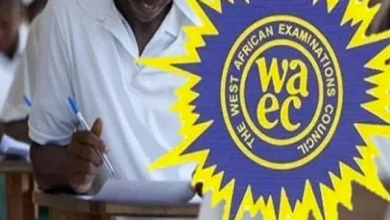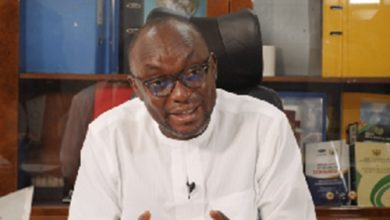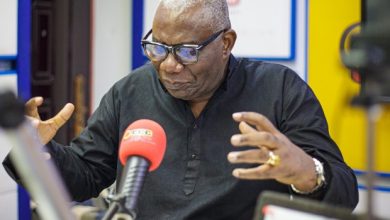
The National Democratic Congress has released economic figures to ‘expose’ what they described as “cooked figures” on Ghana’s debt to the gross domestic product (GDP) which vice president Dr Mahamudu Bawumia pegged at 48 per cent.
Dr Bawumia at a town hall meeting on Ghana’s economy Wednesday stated Ghana’s debt to GDP stands at 48 per cent, and indicated the economy has been performing better in the last two years than it was under the John Mahama administration.
But delivering a counter-economic lecture Thursday, Member of Parliament for Bolgatanga Central, Isaac Adongo, said the figure given by the vice president was inaccurate because they was outdated.
He observed Dr Bawumia used December 2018 figures of the country’s foreign debt and added same to March 2019 domestic debt.
According to the financial consultant, if you use the old series, Ghana’s debt to GDP would have been 72 per cent, something he said was outrageous considering the fact that the government was yet to experience its first election.
“…are you seeing these numbers or you’re seeing something else? That is the reason they are cooking the numbers and are not reporting the full extent of debt,” Adongo said.
Ghana’s destiny in foreigners
In his analysis, even worst is the current situation where there is “over concentration of external debts”.
According to him, Ghana’s economy is now being held by just about three foreign investors, explaining “What it means is that only a few people are now holding our external debt and Ghana’s destiny is tied to Franklin Templeton and two three other investors”.
This situation, he argued, does not only compromise the independence of Ghana’s policy decision making but also increases our vulnerability risks.
In his view, Ghana’s monetary policy decisions cannot be taken in isolation of the interest of these investors and foreign constituents as is being held by the governor of the Bank of Ghana.
“If they [the investors] decide that their interest is now better served in south East Asia and they come to take their money the cedi will disappear. This is the state of our Ghanaian economy and this is not the one to be celebrating,” he told Dr Bawumia.
“Because Bawumia was coming to do a lecture, they stopped our public debt in December 2018 and when they stopped in December [2018].
“As for the domestic debt, they reported up to March 2019. They remembered that they had borrowed 3.7 billion which they added to their reserve and showed that the reserve is high so me too I added it.
“And when added it appropriately, based on the new series, our debt to GPD is 58 percent but Bawumia claimed it was 48 per cent,” Mr Adongo who is a member of the Finance Committee of Parliament stated.
Source: Ghana/otecmfghana.com




